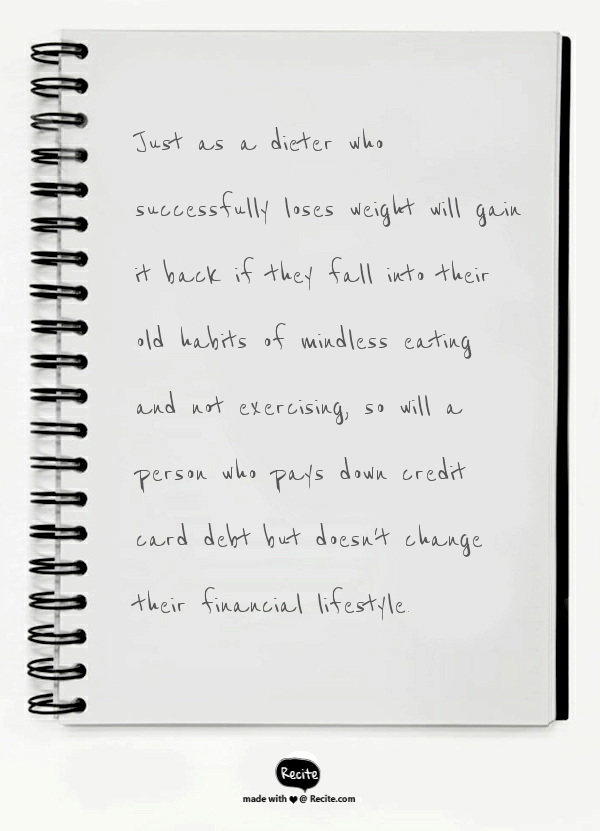
If you used a credit card to finance your holiday purchases and don’t have the cash to pay your balances in full, now’s the time to form a plan for how you’ll dig out of holiday debt. (Or any debt you’re ready to shed, for that matter).
Despite the many apps and budgeting software tools that now exist, a debt calculator is one of the most effective tools you have at your disposal. With it, you can plan your debt payoff strategy based on what you owe, and what it costs you. Plus, it’s completely free, and requires almost no financial literacy on your part.
Here’s a step by step guide to using a debt calculator to pay off your debt.
Gather the hard numbers. Compile all of your credit card statements and take note of two key pieces of information on each statement: The total balance owed, and the interest rate each card charges. Create a five column list that includes:
- The name of the creditor (ie, Chase Freedom card)
- The minimum payment due
- Total balance owed
- Interest rate associated with the card
- Payment due date.
Sort the list so that the card with the highest interest rate is on top. The credit card with the second highest interest rate should follow, then the third highest, etc.
Total the sum of what you owe. Add the total amount of your debt. It may not be what you want to see and quite frankly, it may give you anxiety. But you need to know exactly where you stand, in order to plan your way out of debt.
Figure out what you can afford to pay. Check in with your budget to calculate your monthly take home pay. Write down all of your fixed costs. These are essentially those that are unlikely to change significantly, in the short term. (Think utilities, car, house, and student loan payments). Then, create a list of monthly expenses that could be eliminated or reduced fairly easily (assuming you are willing to make some lifestyle adjustments). This will usually include costs like phone/internet, cable, gas, groceries, gym memberships and miscellaneous expenses like entertainment, and travel.
Play around with some different payoff scenarios to see just how long it will take you to get out of debt, based on how aggressively you plan to pay your balances down. Subtract your monthly take home pay from your fixed expenses. In theory, this is how much you could pay to debt each month, if you were willing to eliminate many unnecessary expenses. Using that number, subtract your unfixed expenses total. This is what you currently have left to pay towards debt, assuming you do nothing to change your current budget and spending.
Consider the difference in the two numbers. Are you motivated enough by the thought that you could have a lot more money to pay off debt than you realized (which ultimately becomes cash flow), if you make some changes to your budget?
Plug the numbers into a debt calculator (CNN offers a free version that’s easy to use). You’ll get a sense for how long you’ll be in debt, based on what you pay each month. Like knowing the sum total of your debt, understanding about how long it will take you to get out of it based on what you pay can be a depressing view. But it’s the first step to financial freedom. Only when you know where you stand can you can decide how and when you’ll get out of debt.
Maximize the Value of Your Debt Payments. Despite what debt consolidation services promise, there are but three ways to get out of debt:
- Reduce expenses so you can put money towards your monthly debt.
- Make more money
- Maximize the value of every dollar you put towards your debt balances by tackling the most expensive debt first. Revisit the list you created in step one. If you pay as much as you can towards the first creditor on your list, regardless of the balance owed, you’re tackling your priciest debt first. Though you’re still making the minimum payment due on your other cards, this is the quickest way to put a dent in the debt, because you’re eliminating that which costs you the most.
Learn how to use credit cards responsibly. Cutting up your credit cards will not make debt go away. Freezing credit cards doesn’t remove spending temptation (especially now that you can store your credit cards in a website, or pay using your mobile wallet). Closing credit card accounts won’t help your credit score; it can actually lower your credit score.
So what does help manage credit card spending? You. More specifically, your behavior, and your financial attitude. Just as a dieter who successfully loses weight will gain it back if they fall into their old habits of mindless eating and not exercising, so will a person who pays down credit card debt but doesn’t change their financial lifestyle.
Consider the personal “triggers” that got you into debt in the first place. Do you tend to avoid thinking about money because it makes you feel vulnerable? Do you spend to resolve stress? Do you live beyond your means to keep up with social pressure? These are all common reasons for spending. But all can be resolved if you understand what leads you to spend. When you can be aware of the factors that lure you into bad spending decisions, you can proactively take control of your financial life.
